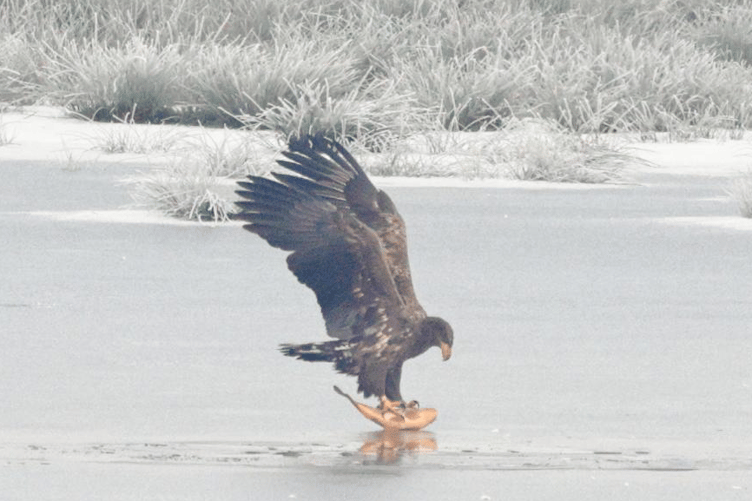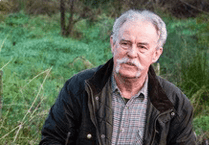SUPPORTERS of plans to reintroduce sea eagles to Exmoor were rallying round this week in the face of protests from some farmers.
Exmoor National Park Authority (ENPA) has been consulting on a project which could see 20 juvenile white-tailed eagles released over three years.
Several of the birds have already visited Exmoor during the past few years since they were reintroduced to the Isle of Wight five years ago.
But some farmers fear the eagles could take their lambs and have objected to the reintroduction programme, which is being led by the Roy Dennis Wildlife Foundation.
ENPA’s consultation closed last week and saw more than 2,000 people take part, of whom 80 per cent were supportive and 17.4 per cent were against.
Most respondents said they lived, worked, or had worked, on Exmoor, and more than 1,900 said they had spent time in the national park.
An ENPA spokesperson said: “All the results, comments, and concerns raised from the survey will be submitted to Natural England, along with data and evidence collated by Roy Dennis Wildlife Foundation from the sea eagle reintroduction project on the Isle of Wight over the last six years, and results from ongoing engagement, one on one meetings, with local stakeholders, including the Exmoor Hill Farming Network and representatives of the National Farmers Union and National Sheep Farmers Association.
“Natural England will then make a decision on whether or not to approve the license application for the project.”
A fierce debate on the issue has been raging on social media with often acrimonious comments directed from one side to the other.
One supporter, Jo Dawson, said: “This will help to bring back a balance of wildlife.
“They are called sea eagles because of what they eat, fish, seabirds, etc.
“Nobody is saying they will never kill anything else, however, they will quite happily take the kill of, let’s say, a crow, at lambing time.
“There are going to be just a few introduced and they will be tagged so they can be monitored to check the impact.
“It is time that certain people realise they cannot control everything, including nature, and accept some changes are necessary so that they can object to the real threats, eg solar farms.”
Tara White said: “Most white tailed sea eagles do not kill lambs, but will feed on dead lambs.”
Ms White said it was, however, a justifiable concern because a release programme in Scotland had shown a third of the birds had remains of lambs in their nests.
But she said the scientific evidence showed sea eagles were not likely to cause a problem on Exmoor or kill live lambs.
Andrew May said: “I understand the concerns, but there is an undercurrent that reminds me of the reported opposition to beaver reintroduction by people concerned the beavers would ‘eat all the fish’.”
Julian Harcombe said: “The obvious choice would be to blame them for the majority of lamb deaths, however, many other animals and birds will also kill lambs, given any chance.”





Comments
This article has no comments yet. Be the first to leave a comment.